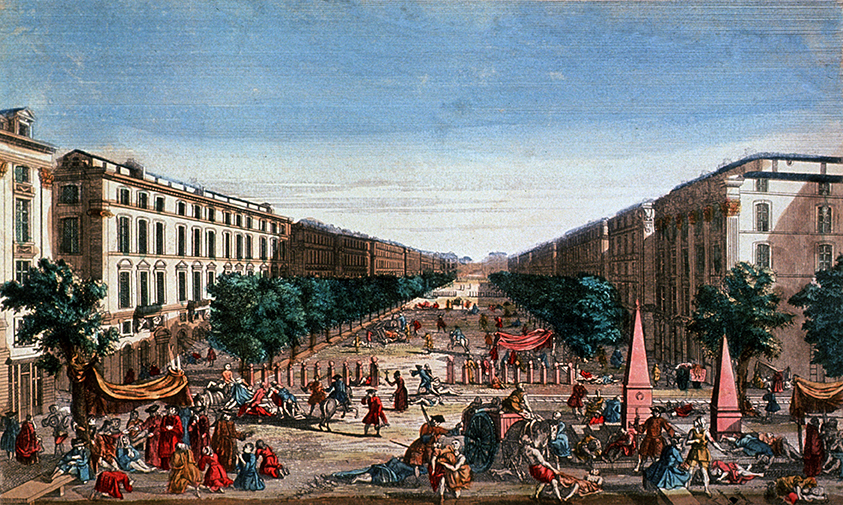Viral Networks Workshop to Illuminate Medical History
December 12, 2017

Medieval data on the bubonic plague, the gradual adoption of statistics in clinical best practices, and a social-network analysis of women’s health care across a century are just a few examples of the interplay between the digital humanities and the history of medicine.
They’re also topics that will be explored in Viral Networks, a Virginia Tech workshop supported by a grant from the National Endowment for the Humanities.
The workshop, which will be held at the National Library of Medicine in Bethesda, Maryland, on January 28–30, 2018, will convene medical historians whose research shows particular promise for making innovative use of methods, tools, and data from the digital humanities.
Welcoming remarks for the workshop will be provided by Patricia Flatley Brennan, director of the National Library of Medicine, and Jon Parish Peede, acting chairman of the National Endowment for the Humanities.
“The presence of these national leaders shows recognition of the value of both the workshop and digital humanities in general,” said project director E. Thomas Ewing, a history professor in the College of Liberal Art and Human Sciences. “We’re grateful to both institutions for their support.”
The National Library of Medicine, part of the National Institutes of Health, is the world’s largest medical library.
“With this workshop, the National Library of Medicine is thrilled to continue its partnership with the National Endowment for the Humanities — and especially its Office of Digital Humanities — to embrace the digital humanities,” said Jeffrey S. Reznick, chief of the library’s History of Medicine Division. “This dynamic and exciting field combines with longstanding practices in historical research to help reveal new ways of examining the past for the benefit of present and future understanding about the human condition.”
Workshop participants will include a dozen contributing scholars from as many universities across the country, consulting scholars who are experts in network analysis, and Advisory Board members who will coordinate stages of collaborative writing, peer review, and final publication in an open-access scholarly platform. The collaboration will result in a book that includes chapters by the contributing scholars and introductory essays by the consulting scholars.
In addition to Ewing, Virginia Tech workshop participants include Advisory Board members Peter Potter, director of publishing strategy at University Libraries, and Katherine Randall, a graduate teaching assistant in the Department of English, as well as consulting scholars Amy Nelson, an associate professor in the Department of History, and Samarth Swarup, a research assistant professor in the Biocomplexity Institute.
“This workshop addresses many priorities at the university,” Ewing said, “including transdisciplinary research, new approaches to digital publishing, innovative applications of data analysis, and scholarship on the human dimensions of disease, medicine, and health.”
The College of Liberal Art and Human Sciences has a strong record of funding from the National Endowment for the Humanities, a U.S. government agency that provides grants to support research, education, preservation, and public programs in the humanities. During the past six years alone, the agency has awarded college faculty members with nearly $1 million for a range of initiatives.
The agency has funded, for example, several other Virginia Tech history-of-medicine projects under Ewing’s leadership: a workshop on images and texts in medical history; research into the Russian flu epidemic of the late 19th century; a summer seminar on the Spanish influenza pandemic of 1918; and the development of data-mining methods to track the spread of the Spanish flu.
In 2016, Virginia Tech was the only university in the country to host two prestigious National Endowment for the Humanities summer institutes, with James Dubinsky, an associate professor of rhetoric and writing in the Department of English, organizing one on veterans in society, and Matthew Heaton, an associate professor of history, organizing another on race and mental health in history and literature.
More recently, Edward Gitre, an assistant professor of history, shared a grant with Kurt Luther, an assistant professor of computer science in the College of Engineering, to create an American Soldier Collaborative Digital Archive.
“This digital humanities workshop will explore a key question for humanities scholars,” said Ewing. “What does it mean to live our lives in networks, whether material, social, virtual, or metaphorical? Medical historians, as much as humanities scholars in any field, are positioned to explore the full complexity of this problem by examining the meaning of health in context and the connections that shape illness across time and space. Even more important, the workshop will affirm the humanity that is central to all our research.”
Written by Paula Byron





